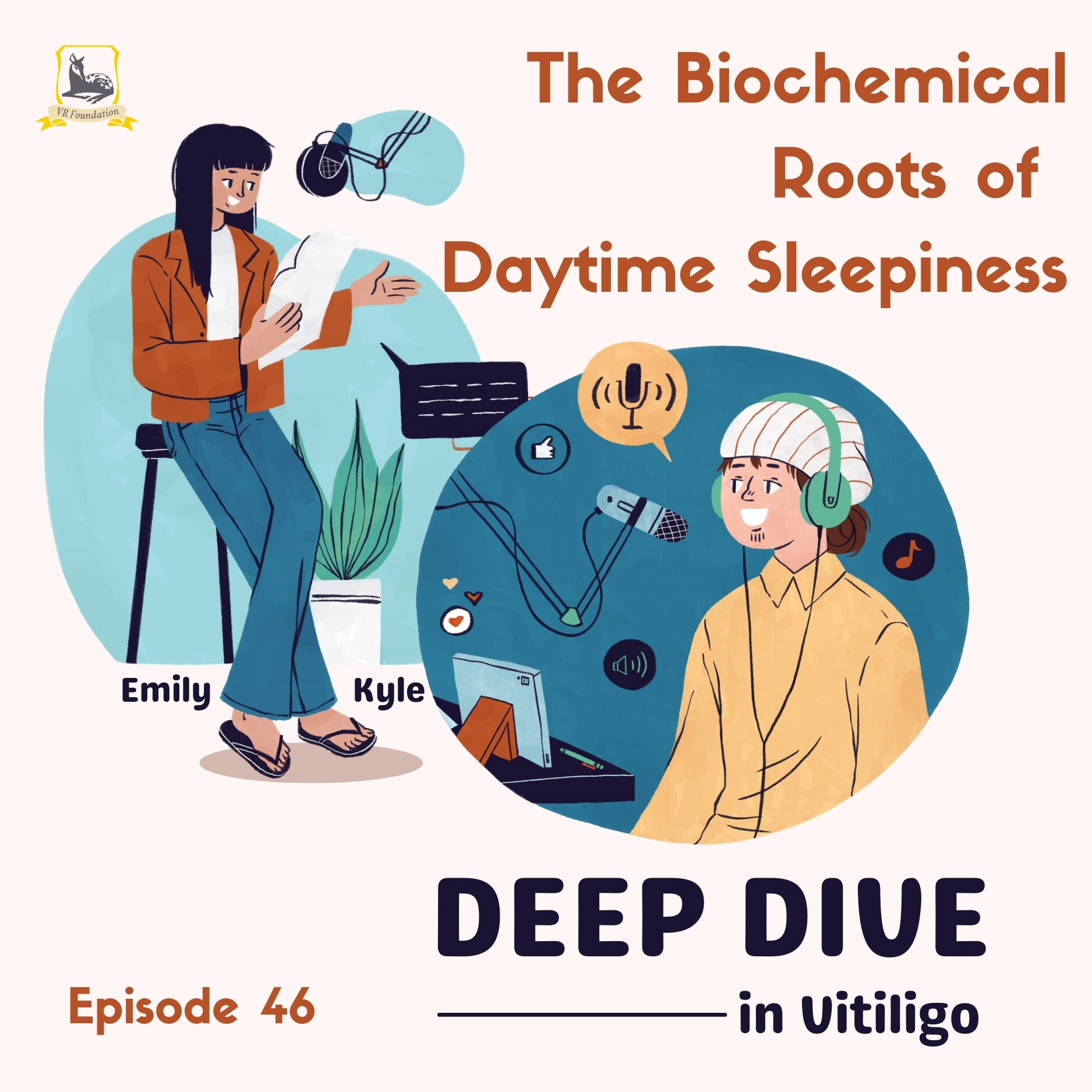Our work is entirely funded by private donations – we receive no money from government. Your money will help us continue funding research into vitiligo and supporting people affected by the condition.
Podcast
Why You’re Sleepy After Lunch and What It Means For Vitiligo (Ep. 46)
That 2 p.m. crash isn’t just about carbs, boredom, or Netflix binges. A sweeping new study of 6,000 people shows your blood chemistry — the hormones, fats, and even last night’s cheese board — may be scripting your afternoon slump.
In this episode, we unpack the seven molecules linked to daytime sleepiness, from omega fatty acids that keep you sharp to tyramine (hello, wine and parmesan) that makes men especially groggy.
We’ll explore how stress hormones, diet, and even skin conditions like vitiligo tie into your energy levels — and why one in three adults worldwide wrestle with this “minor” problem that actually drives accidents, obesity, and poor health.
It’s a story of metabolism, not willpower. Think of it as your biochemical fingerprint for wakefulness — and a glimpse at a future where your doctor might prescribe walnuts, sushi, or morning light instead of a third espresso.
☕ Tune in for a science-meets-everyday-life deep dive that might change how you think about your post-lunch haze.
Read more:


FAQOther Questions
- Polypodium leucotomos as an adjunct treatment for vitiligo?
The tropical fern Polypodium leucotomos (also known as Polypodium aureum) and its relative Polypodium decumanumhave shown potential benefits for managing vitiligo and other auto...
- Shall I take vitamin D for my vitiligo?
Vitamin D plays a central role in the prevention of different inflammatory and chronic diseases. Consuming 1,000–4,000 IU (25–100 mcg) of vitamin D3 daily should be ideal for mo...
- Which is better for judging vitiligo — Wood’s lamp or dermoscopy?
A recent study out of India compared the two head-to-head. Both tools correlated fairly well with clinical criteria, but dermoscopy had a slight edge: Wood’s lamp: sensitivit...
Though it is not always easy to treat vitiligo, there is much to be gained by clearly understanding the diagnosis, the future implications, treatment options and their outcomes.
Many people deal with vitiligo while remaining in the public eye, maintaining a positive outlook, and having a successful career.
Copyright (C) Bodolóczki JúliaBy taking a little time to fill in the anonymous questionnaire, you can help researchers better understand and fight vitiligo.